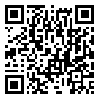Volume 9, Issue 28 (6-2002)
RJMS 2002, 9(28): 129-137 |
Back to browse issues page
Download citation:
BibTeX | RIS | EndNote | Medlars | ProCite | Reference Manager | RefWorks
Send citation to:



BibTeX | RIS | EndNote | Medlars | ProCite | Reference Manager | RefWorks
Send citation to:
Moradi Lakeh M, Tehrani Banihashemi S, Varasteh Kia G, Roohipour M. COMPARISON OF TRAUMA SCORING SYSTEMS FOR PREDICTION OF PATIENTS’ PROGNOSIS. RJMS 2002; 9 (28) :129-137
URL: http://rjms.iums.ac.ir/article-1-266-en.html
URL: http://rjms.iums.ac.ir/article-1-266-en.html
Abstract: (10350 Views)
ABSTRACT
This study was done to compare the trauma scoring systems (ISS, RTS, TRISS and ASCOT) in prediction of patients’ outcome (including survival, hospital length of stay and hospital costs). A randomely selected sample of 525 cases were selected from patients who admitted to hospital for atleast 1 day and all in-hospital deceased patients. Totally, 6.5 percent of patients had died. Trauma severity of patients set was 8.57 (± 0.62) according to ISS, 7.59 (± 0.08) according to RTS, 1.8 (+ 0.12) according to TRISS and 4.03 (+ 2.5) according to ASCOT. Trauma severity of survivors and non-survivors were significantly different using each of the above systems. The largest area under ROC curve was belonged to ASCOT following with TRISS, ISS and RTS. ISS had the greatest correlation with hospital length of stay (r = 0.76, P< 0.01) and costs (r = 0.77, P< 0.01). There were significant regressions between each system point and hospital staying or charges, but even the greatest determination coefficient were not beyond the 0.37 (for hospital staying) and 0.36 (for hospital charges). ASCOT and TRISS had greater Precision to predict mortality and ISS was the best predictor of hospital length of stay and charges. Using these Scoring methods in a National Surveillance System for Trauma is Recommended.
Type of Study: Research |
Subject:
Community Medicine





